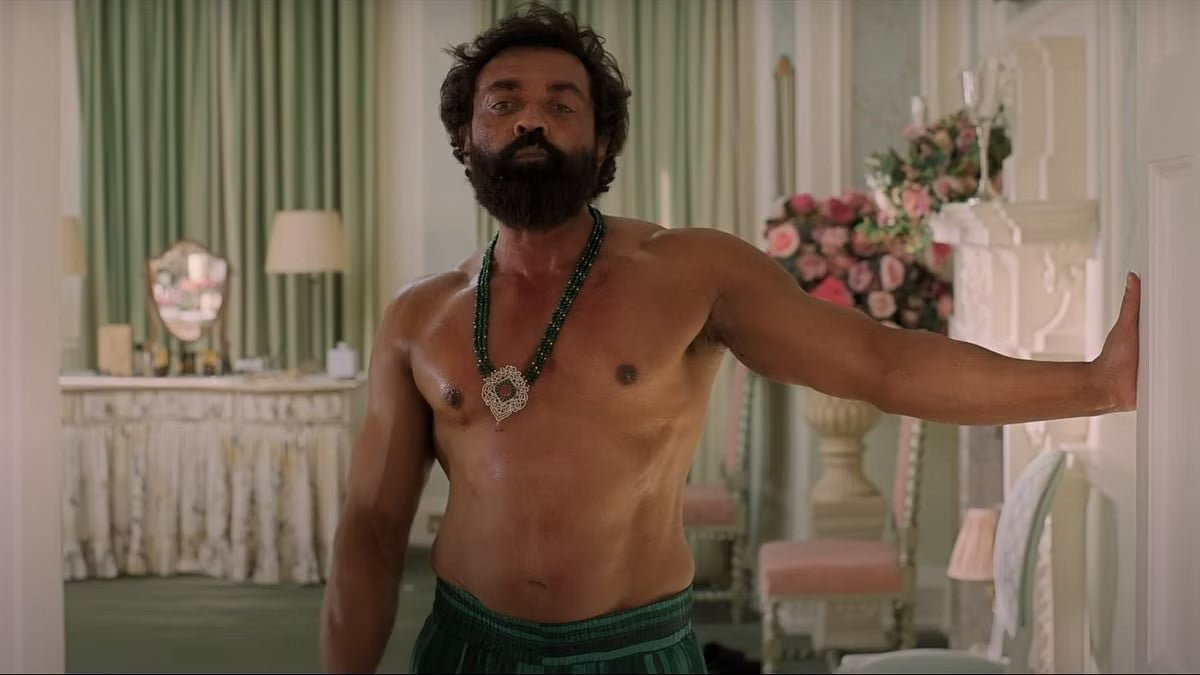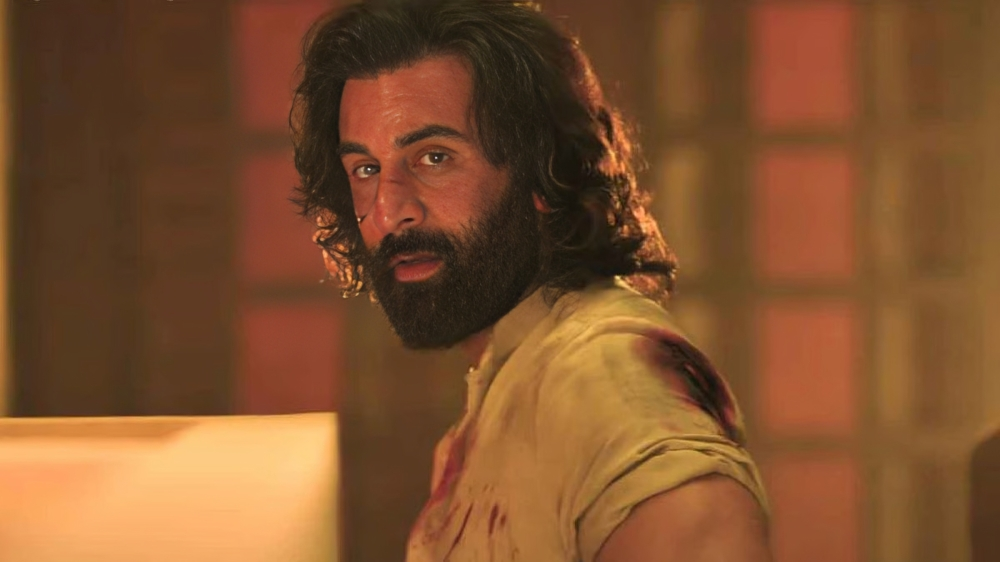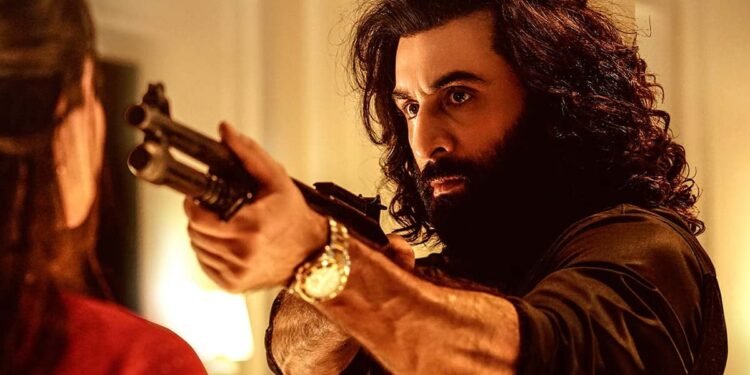As soon as I started Animal, I knew it wasn’t for me. It was evident from the opening scene – disconnected from the rest of the film, and exceedingly arrogant in its trivialising of harassment – that I wasn’t the target audience. I’m not complaining about the choice of demographic – some things just aren’t for you. However, it’s the calculated manner in which the film makes light of the issues it wishes to highlight that feels heartbreaking, especially because the premise initially seemed promising.
When one operates from a place of spite, the beauty of an otherwise exciting portrayal can be lost. Sandeep Reddy Vanga, simply to anger the feminist community, misses out on the opportunity to brilliantly highlight the severity of childhood trauma, in combination with the deprivation of fatherly love that leads to young boys possibly morphing into the titular animals depicted in the film.
Highs and lows
Make no mistake – the film is shot exceptionally well. Sandeep falters with poorly written dialogues that seem to solely rely on their shock value. This gets old swiftly. Yet, he compensates with engaging directorial choices. The Netflix cut is more than three hours long, which is at least two hours too many for Sandeep to highlight the nothingness that the film unearths. However, the fresh, abstract shots and intriguing editing choices make for a riveting experience when one needs it the most, with the action sequences utilising choice choreography and music that must be applauded.
Even so, the main concern is the plot. When the trailer was released, I was the first to sing praises of the promise the offering held. After all, no one minds watching a rugged Ranbir Kapoor battle daddy issues whilst also combating an equally rugged Bobby Deol, all under the watchful eyes of the evergreen Anil Kapoor. The film dangles these ideas as bait, but fails to pay off any of the aforementioned premises.
Flimsy expedition
What could have been a thorough exploration of the father-son bond – a rarely touched-upon, yet exceedingly vital topic – stumbles as the film becomes all about the absurdities present in the dialogue. The build-up is lacklustre, to begin with. It hinges on the assumption that a child, who has everything except his father’s affection, must grow up to be a goon to gain approval or love. The plot does nothing to feed this tangent, with a jump from Ranvijay’s sheltered childhood to him showing signs of criminal violence. The attempt to pass off Ranbir as a school-going child is also laughable, at best.
The father-son bond, especially in South Asian communities, is a complex one. Unsaid words and half-felt emotions brim under the surface of exchanged greetings. There is a galaxy of sentiments waiting to be excavated and presented to the world to highlight how fathers shape sons with their presence and absence. Sandeep wants to tackle this, but is sidelined into making a film that shows us a toxic, masculine figure, without fully digging into his “Why?” It truly feels like a disservice to the offering – and men, as a whole. The film could have carried out its storytelling in a much more nuanced manner.
It is here that one laments Sandeep’s decision to create a project from a place of anger. Where he could have created a masterpiece, he falls short, going out of his way to prove that the real and reel worlds belong to men, and so, their sins and acts of violence must be forgiven, and, at times, celebrated.
The characters
Another area where the film disappoints is by setting up an antagonist and failing to do justice to his presence. Bobby is foreboding and intimidating as Abrar, but his entrance – nearly two hours into the film – is far too delayed and his journey, abruptly cut short. The star, with his limited screen time, delivers and how. Undoubtedly one of the highlights of the film, Abrar is menacing and unhinged, with the makings of the perfect rebuttal to Ranvijay’s hypermasculinity. However, one is left wanting to see more of the star, and the decision fueling his short-lived presence is more disappointing, than anything else.
It is thus that Ranbir is burdened with the task of carrying the narrative on his shoulders – a responsibility the star takes on quite well. Despite the awful dialogue and some wildly unnecessary scenes, Ranbir sells Ranvijay to perfection. He makes you hate him and everything he stands for, creating a compelling anti-hero. His maddening antics and misogyny-fueled persona are triggering and evoke a strong emotional response, which, one assumes, was what Sandeep was going for. Hence, Animal is, undoubtedly, Ranbir’s film, through and through.
Damaging aspects
A lot has been said about the misogyny of the film, which is genuinely frustrating to get through. One understands why Ranvijay is the way he is, but one also fully fathoms how certain scenes and dialogues are added solely to infuriate. The repetition of this attempt becomes tiring, and eventually, one stops taking it seriously. It is damaging, without a shadow of a doubt, to build up and glorify Ranvijay in such a manner, especially when Ranbir is the face of the anti-hero. That lost nuance, where Ranvijay should have been shown primarily as a monster, instead of a figure to aspire to, is what truly makes the film irredeemable.
Is it troubling that the film has made the kind of money that it has? Yes. At a time when polarisation between genders has taken the digital and social realms by storm, one cannot help but feel a sinking sense of doom in the pit of one’s stomach, wondering how the depiction will manifest. Unfortunately, as Sandeep wishes to convey – it is a man’s world, and the price will eventually be paid by women.



 Pakistan Rupee Exchange Rate
Pakistan Rupee Exchange Rate





